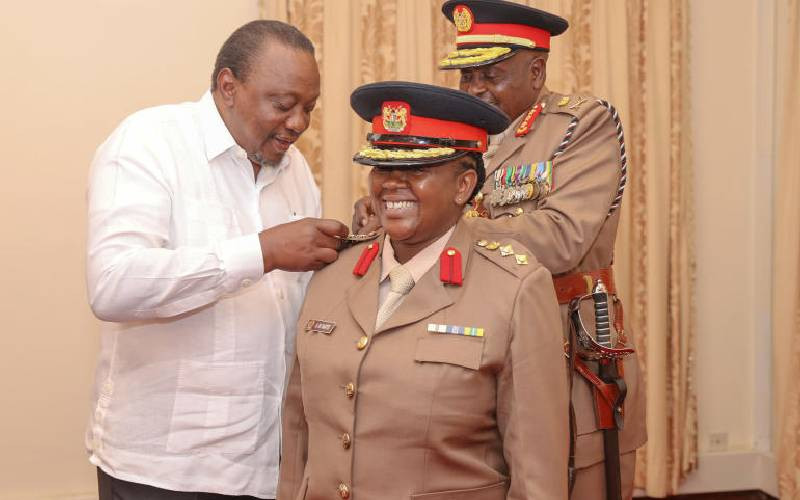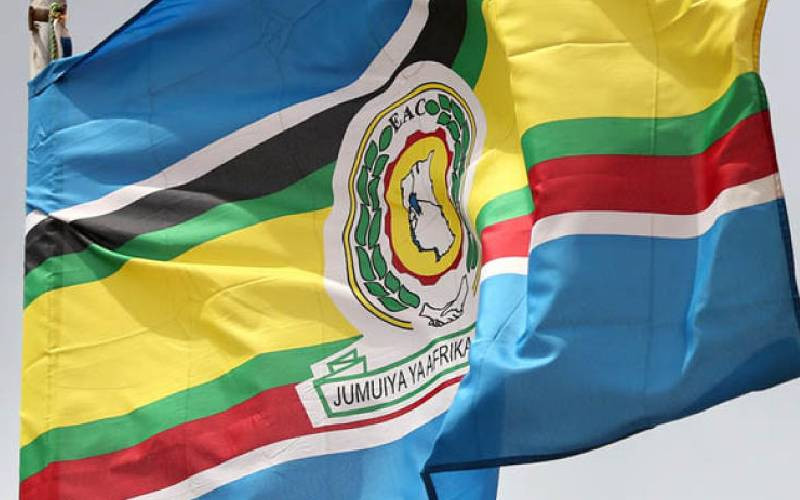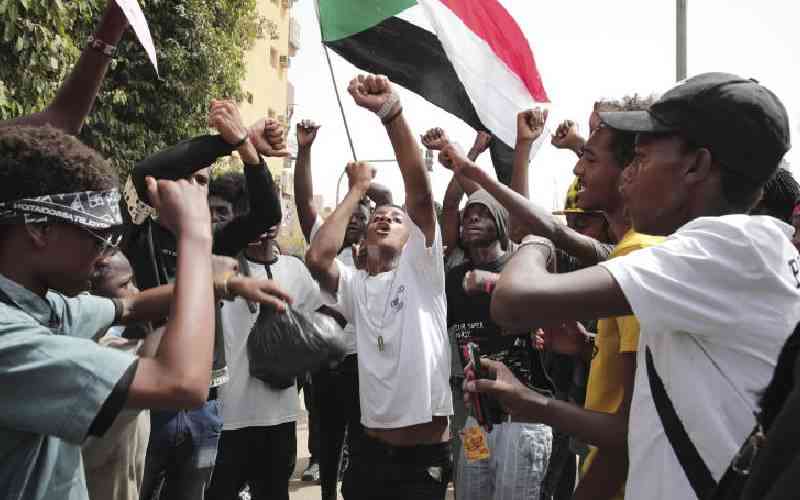The extraordinary summit of five African Heads of State in Ethiopia has failed yet again to hammer out a power-sharing deal between South Sudan President Salva Mayrdit Kiir and his former deputy, Dr Riek Machar.
This is even after President Uhuru Kenyatta, who is Chairman of East African Community (EAC) and Ethiopia’s Hailemariam Desalegn, who chairs the Intergovernmental Authority on Development (IGAD), steered two day intensive talks.
The talks, which kicked off on Thursday (November 6) reportedly stretched into the night on Friday and into the wee hours of yesterday (Saturday), with Presidents Kenyatta and Desalegn determined to resolve a power-sharing deal between Kiir and Machar.
At some point the efforts of the Kenyan and Ethiopian leaders seemed to pay off, with Kenya’s Foreign Affairs Cabinet Secretary, Amina Mohamed, even tweeting summarily on Friday night – “there is a deal on South Sudan. Parties agree on immediate cessation and on all other issues except one”.
After the resolutions were released, she again tweeted: “ The final communique contains sanctions against violators of the cessation of hostilities, asset freezes, travel bans and arms embargo.”
Freeze of assets
Before entering into a second straight night of talks to try to bridge the differences between the Kiir and Machar parties, the regional leaders led by Kenyatta and Desalegn affirmed they would not rest until a comprehensive peace deal was reached.
Manoah Esipisu, spokesperson for the Kenyan presidency, was equally optimistic: “My understanding is that the leaders are determined to make progress as they see this as a pivotal stage in the negotiations.” But it is, as expected, “a difficult process,” he told the press in Addis Ababa.
Nonetheless, Presidents Kenyatta and Desalegn succeeded in getting the South Sudan’s political leaders to commit to an unconditional and complete end to hostilities. IGAD, also accepted the request by both parties for a further 15 days to consult and iron out the remaining outstanding issues.
The Government of South Sudan led by President Kiir and the SPLM/A (in opposition) under former Vice President Machar also agreed to immediately stop recruitment and mobilisation of civilians.
In a communique issued at the end of the 28th Extra-ordinary Summit of IGAD Heads of State and Government, also attended by President Yoweri Museveni (Uganda), Omar Bashir (Sudan), Ismail Guelleh (Djibouti) and Hassan Sheikh Mohamud (Somalia), the leaders warned the warring parties that any violation of the cessation of hostilities agreement would invite stern interventions to protect life and restore peace and stability. These will include freeze of assets owned by the violators, travel bans and blocking supply of materials that could be used in war.
The Summit was also attended by Dr Dlamini Nkosazana Dlamini Zuma, Chairperson of the African Union Commission, Mahboub Maalim, Executive Secretary of IGAD, and the IGAD Special Envoys for South Sudan, Seyoum Mesfin of Ethiopia, Gen Lazaro Sumbeiywo of Kenya and Gen Mohammed Ahmed Mustafa El Dabi of Sudan. There were also representatives of the United Nations, the People’s Republic of China, Denmark, Japan, the European Union, the Troika (the Governments of Norway, US and United Kingdom) and the IGAD Partners Forum (IPF).
Speaking after the resolutions were read out by Ethiopia’s special envoy for South Sudan, Mesfin, Kiir and Machar thanked IGAD and affirmed their commitment to an end to the suffering of the people of Africa’s youngest nation.
Hostilities between the two hitherto comrades in SPLA/M and South Sudan Government were ignited by the sacking of Machar as VP by Kiir in April last year. However, the civil war in the country kicked off on the evening of December 15, 2013 following a disarmament exercise of presidential guards gone awry.
The exercise degenerated into a battle between soldiers from Kiir’s Dinka community and those of Machar’s Nuer community. The fighting spread to civilians with Dinka soldiers targeting Nuer civilians in the capital city of Juba and vice versa. “This conflict has to come to an end. We need to focus our attention and resources on development and not on endless conflicts,” said President Uhuru Kenyatta, who has been the pointman in getting Machar and Kiir off the battlefields.
Stay informed. Subscribe to our newsletter
Immediate cessation
The IGAD leaders granted Kiir and Machar 15 more days to go back and explain to their supporters why they needed to end the hostilities.
“The Parties commit to an unconditional, complete and immediate end to all hostilities, and to bring the war to an end, as of the date of this Resolution. The Parties further commit to the immediate cessation of the recruitment and mobilisation of civilians,” the regional heads said in a joint communique issued Friday night at Addis Ababa. The regional heads, who met together with key emissaries from the United Nations, China, Denmark, Japan, the European Union, the UK, the US and Norway, also warned Kiir and Machar that the regional countries will step in at any time to quell the fighting.
“The IGAD region shall, without further reference to the warring Parties, take the necessary measures to directly intervene in South Sudan to protect life and restore peace and stability,” the communique noted.
Possible assistance
The IGAD bosses added: “Should it be necessary to implement these measures, the IGAD region calls on the Peace and Security Council of the African Union, the Security Council of the United Nations, and the entire international community, to render all possible assistance in the implementation of these measures.”
IGAD’s executive secretary Mahboubd Maalim, and special envoys Seyoum Mesfin (Ethiopia), Lazarus Sumbeiywo (Kenya) and Gen Mohammed Ahmed MustafaEl Dabi (Sudan).
 The Standard Group Plc is a
multi-media organization with investments in media platforms spanning newspaper
print operations, television, radio broadcasting, digital and online services. The
Standard Group is recognized as a leading multi-media house in Kenya with a key
influence in matters of national and international interest.
The Standard Group Plc is a
multi-media organization with investments in media platforms spanning newspaper
print operations, television, radio broadcasting, digital and online services. The
Standard Group is recognized as a leading multi-media house in Kenya with a key
influence in matters of national and international interest.
 The Standard Group Plc is a
multi-media organization with investments in media platforms spanning newspaper
print operations, television, radio broadcasting, digital and online services. The
Standard Group is recognized as a leading multi-media house in Kenya with a key
influence in matters of national and international interest.
The Standard Group Plc is a
multi-media organization with investments in media platforms spanning newspaper
print operations, television, radio broadcasting, digital and online services. The
Standard Group is recognized as a leading multi-media house in Kenya with a key
influence in matters of national and international interest.








